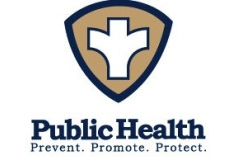Food Safety
Here are refrigeration, freezing and storage tips you can follow to help prevent foodborne illnesses caused by Salmonella, E. coli O157:H7, C. botulinum, Listeria and others.
- Refrigerate or freeze perishables as soon as possible. Do not leave items needing refrigeration, such as meat, poultry, seafood, eggs, produce, leftovers or “doggie bags” out longer than two hours, or one hour if the air temperature is above 90 degrees F. When filling your refrigerator or freezer, leave space between items so air can circulate. If items have not been kept refrigerated, throw them out.
- Freezing food at 0 degrees F will prevent bacteria from reaching it. It will not reduce its nutrients, but the length of time food is stored in a freezer can affect food quality, such as tenderness, flavor, aroma, juiciness and color.
- Keep cooling appliances at the proper temperatures. Refrigerators should be set at or below 40 degrees F and freezers at 0 degrees F. Periodically check temperatures and replace thermometers when needed.
- Check “use by” and expiration dates. A “use by” date is a guide for when the product’s flavor or quality starts to wane. An expiration date is when the item will start to go bad and you should discard it. An exception for a “use by” date is infant formula and some baby foods, in which case those foods must be used by the date listed. However, always err on the side of caution. If any food starts to look, smell or taste questionable even before the date listed, throw it out.
- Be aware of spoiled food and throw out anything that looks or smells suspicious. However, even food that doesn’t look, smell or taste spoiled can make you sick. Raw or undercooked meat, poultry, seafood, milk and eggs, unclean water, and improperly chilled fruits and vegetables can carry pathogenic organisms.
- Thaw food in the refrigerator, under cold water or in the microwave. Do not leave it out on the counter. When marinating, keep food in a sealed or covered container in the fridge.
- Separate raw foods from others, and properly wash your hands, utensils and surfaces after handling them.
- Safe cooking temperatures vary for different meats. Beef, pork, lamb are safe at 145 degrees F, fish at 145, ground beef, pork, lamb at 160, and turkey, chicken, duck at 165 degrees F.
- Prior to consuming fruits and vegetables, scrub them under running water to remove any dirt and bacteria, and cut off any damaged or bruised parts.
- If you experience a power outage, keep refrigerator and freezer doors closed. Food will stay safe in a refrigerator up to 4 hours and up to 48 in a full freezer.
- Do not buy canned goods that are damaged. This means anything that has swelling, leakage, punctures, holes, rusting, crushing or denting. If this happens after purchase, throw it away.
For more information, visit fda.gov. and fda.gov/consumers.
